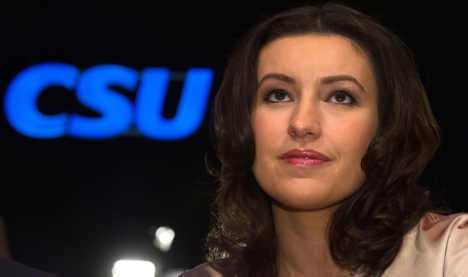Bär, a member of the Christian Social Union sister party to Chancellor Angela Merkel’s Christian Democratic Union, employed her now-husband as a research assistant in her Berlin office before they were married, news magazine Spiegel reported.
Bär’s now-husband stopped working for her in January 2006, a month before the couple got married. In response to being questioned on the nature of the relationship leading up to her marriage, Bär said “I will not comment on my private life.”
It is not entirely clear whether Bär broke parliamentary law, which forbids members of parliament from claiming allowances for work carried out by relatives, marital partners, as well as fiancés.
Bär is also thought to have employed her father’s partner over many years. In response to written questions, Bär confirmed that she had employed the woman in question between June 2007 and March 2013 on a “Midi-Job” basis, offering a monthly remuneration of up to €800.
She refrained however from commenting on whether the individual was her father’s partner. Over telephone she said “I will not comment on the private life of my parents.”
Some political sources have claimed that despite receiving money from Bär, the woman did not in fact work for her. However Bär said her former employee carried out “copy-editing and research.”
It emerged this week that 17 CSU party members in the Bavarian state parliament had employed family members in their offices. Georg Schmid, who resigned as parliamentary leader over the scandal, paid his wife up to €5,500 a month.
CSU leader Horst Seehofer criticized the practice, saying “such things are simply not on.”
The Local/kkf




 Please whitelist us to continue reading.
Please whitelist us to continue reading.
Member comments